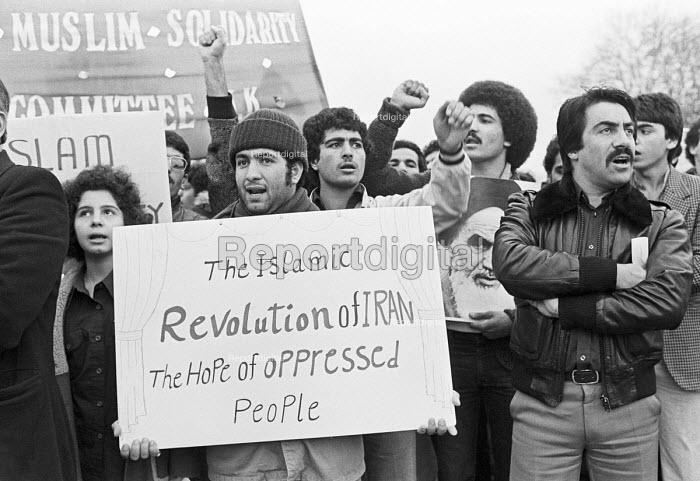
Citizens of West Asia—and the world—are waiting with baited breath for a widely anticipated backlash to Israel’s assassination of Hamas leader Ismail Haniyeh in Tehran from Iran and Lebanon’s Hezbollah. The scale and form of that counterattack are a matter of intense speculation. So too is how—and whether—the Zionist entity’s Western allies will become formal belligerents in its war with the Resistance. Eerily, such a disquieting prospect was mooted as far back as October 8, 2023.
Just over 24 hours after Hamas launched Operation Al-Aqsa Flood, when chaos abounded and Tel Aviv’s genocidal incursion into Gaza had not yet begun, veteran client journalist Robert Peston took to ‘X’ to announce that nameless British “government and intelligence sources” had informed him:
“Hamas’s attack on Israel has the potential to be as destabilizing to global security as Putin’s attack on Ukraine…There is a risk of this crisis spreading well beyond the Middle East…We are in the early stages of a conflict with ramifications for much of the world.”

This can only be considered supernatural foresight, particularly given the same spectral elements apparently failed to foresee Al-Aqsa Flood, despite multiple unambiguous indications of precisely what impended in the attack’s lead-up. We are thus left to ponder whether Peston’s British intelligence sources knew what was to come because they have long planned for, and sought, such an eventuality, and intended to make it happen, one way or another.
This interpretation is amply reinforced by leaked files revealing how, in late 2023, London covertly sought to secure unfettered access to Beirut’s air, sea and land territory for its armed forces. To facilitate indeterminate future “emergency missions,” British soldiers would have been permitted to travel in uniform with their weapons visible anywhere in Lebanon, while enjoying immunity from arrest or prosecution for committing any crime.
The agreement was apparently never inked by Beirut. But its contents demonstrate London sought a scenario in which the country would be a stray trigger-pull away from war, while crawling with armed British soldiers. A report published in June by arch neo-conservative think tank Henry Jackson Society seemingly reinforces that London is preparing for war with Tehran. The organization called for “Iranian aggression” to be “challenged” via direct attacks on the Islamic Republic’s missile facilities, bases and Revolutionary Guard Corps personnel.
If all-out conflict does come to pass between Britain and Iran, it would represent “blowback” even more catastrophic than that produced by the CIA’s covert sponsorship of al-Qaeda in the lead-up to 9/11. Declassified British Foreign Office files spell out how London pivotally supporting Ayatollah Ruhollah Khomeini before and after the February 1979 Islamic Revolution. Were it not for this clandestine backing, world history may have taken a very different path indeed.
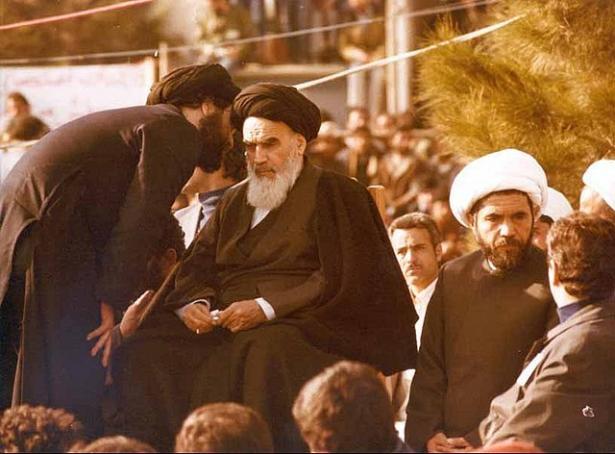
“Minor Consolation”
“If you lift up Ayatollah Khomeini’s beard, you’ll find ‘MADE IN ENGLAND’ written on his chin,” Pahlavi raged not long before the insurrectionary fervor that had angrily surged throughout his kingdom for many months finally swept him from the throne, ending his nigh-on 38-year reign. On the surface, it was a strange statement for the Shah to utter. After all, he was notoriously reinstalled as Iran’s supreme ruler by an Anglo-American coup in August 1953.
Ever since, he had been a seemingly unwavering ally of London. Pahlavi militarily supported various British-backed regimes in the Gulf region, becoming one of the country’s biggest arms markets in the Middle East, and allowing British Petroleum to pillage Iran’s vast crude oil reserves at highly beneficial rates. Moreover, the year prior, then-opposition leader Margaret Thatcher visited Tehran in April, offering a vehement reaffirmation of London’s support for the Shah’s rule:
“I have watched the progress of Iran. I have been impressed by the speed and sureness with which an ancient land has transformed itself in a single generation from one of the world’s poorer countries into one of its leading military and industrial powers. [The Shah] must be one of the world’s most far-sighted statesmen…no other world leader has given his country more dynamic leadership. He is leading Iran through a 20th century renaissance.”
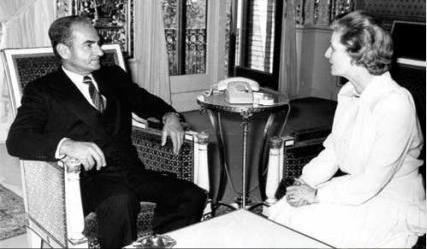
Two months later, then-Labour Foreign Secretary David Owen signed off on the shipment of 175,000 CS gas cartridges and up to 360 unarmed armored personnel carriers to Pahlavi’s notorious, British-trained internal security force, SAVAK. The materiel was urgently needed to brutally crack down on the initial wave of protests that had engulfed Tehran, which eventually led to the Shah’s ouster.
Despite these rhetorical and practical efforts, Pahlavi’s allegations of British support for Khomeini were far from paranoid and bitter conspiracy theorizing. London had a long and deplorable history of backing the most extreme fundamentalist factions in North Africa and West Asia, in order to counter threats to its regional interests. For example, during the 1950s, British intelligence covertly funded and directed Egypt’s Muslim Brotherhood, in an ultimately failed effort to depose Cairo’s troublesome nationalist leader Gamal Abdel Nasser.
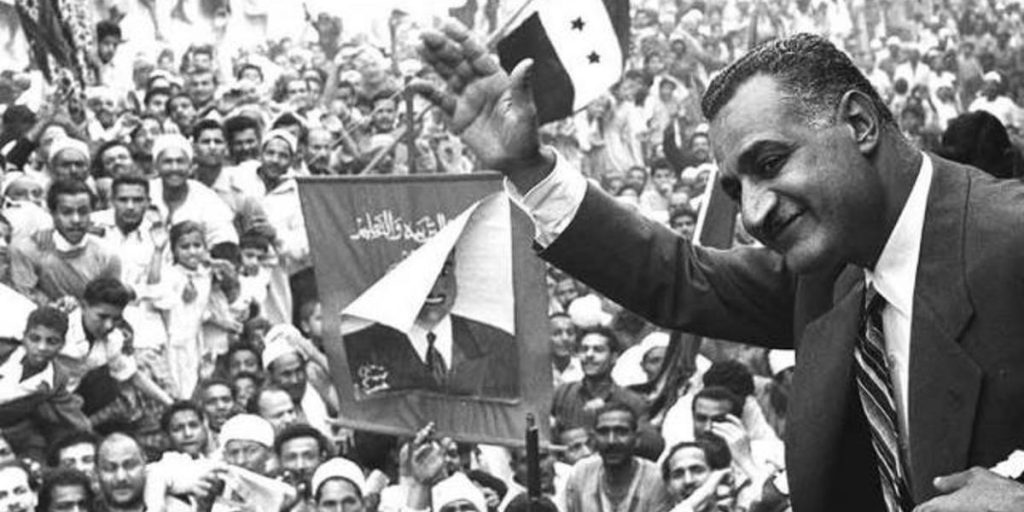
In fact, another Iranian Ayatollah, Sayyed Kashani, played a pivotal role in “Operation Boot,” the very coup that catapulted Pahlavi back to the throne. The CIA and MI6 financed and organized protests that provided the Iranian army a pretext for removing democratically elected, popular leader Mohammad Mosaddegh from power.
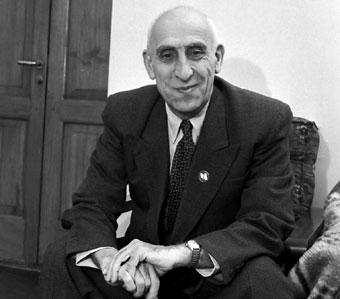
However, despite London’s practical and rhetorical backing for the Shah in public when the protests began, behind the scenes British officials well-understood the writing was on the wall for Iran’s leader. In an internal memo dated October 1978, Prime Minister James Callaghan is quoted as saying, “on the basis of this, I wouldn’t give much for the Shah’s chances.” He believed Foreign Secretary David Owen “should start thinking about reinsuring”—code for cultivating contacts with opposition figures.
Two months later, in a private note to U.S. President Jimmy Carter, Callaghan lamented that the Shah’s removal from power would have “the gravest political, strategic and economic implications for the West.” He bitterly added, “it is of only minor consolation that continued chaos in the country or the emergence of an extreme government dominated by the religious right wing might create almost as many problems for the Soviet Union.”
Still, in addition to expediently limiting damage to Britain’s interests in the country, Foreign Office planners were looking ahead, to a time when they could once again install a leader more to their liking. By December 1978, officials were arguing ministers should jettison all support for the Shah, both public and private, and throw their weight behind the opposition. As David Owen recorded in his memoir:
“We needed someone with charisma who would only be in post for a few years, brave enough to make enemies, and ready later to step aside for the Shah’s son as a constitutional monarch.”
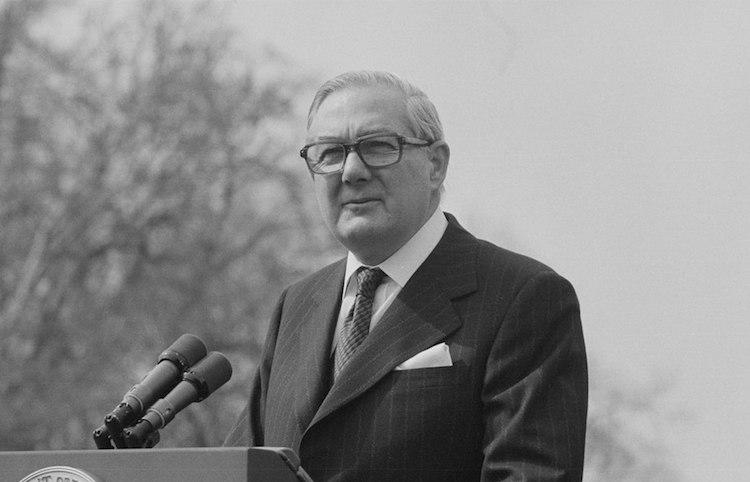
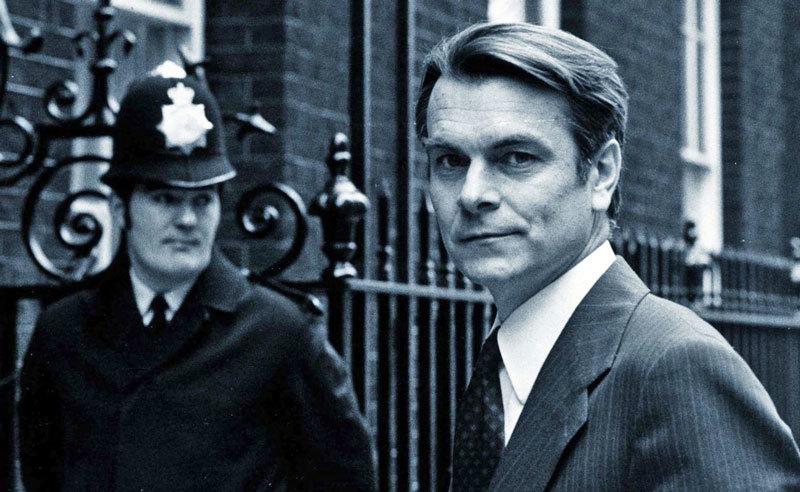
Unstated by Owen, reactionary local forces were also required to offset, if not override, the leftist character of the anti-Shah protests. It was fears of Tehran turning toward Moscow that inspired London to have trained, armed and supported the savage SAVAK. A declassified December 1964 memo circulated by the Information Research Department (IRD), a British spy-run black propaganda operation, spoke of SAVAK’s “successful work” targeting Tudeh, Iran’s Communist Party:
“For some years IRD has collaborated with SAVAK…SAVAK has [used] sophisticated counter-espionage and counter-propaganda techniques [against Tudeh]… [A SAVAK deputy] spent 10 days in the UK at IRD’s expense in October this year and was shown a great deal of IRD’s activities…It may appear that we devote rather more IRD attention to Iran…than is justified by the known results. But Iran is an important country to us, strategically and economically.”
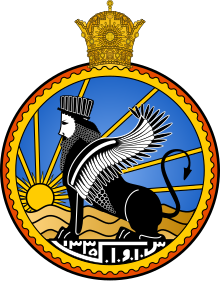
The incipient Iranian revolution confirmed London’s fears of a Communist takeover of the country, making support for Khomeini indispensable from the perspective of British intelligence. In October 1982, MI6 passed a list of purported Soviet agents operating in Iran to the Ayatollah’s government. Dozens of those named were executed and more than 1,000 members of Tudeh arrested. The party was effectively inoperable in Tehran thereafter, at least publicly.
Rewind to late 1978, and in ill-omened expectation of Khomeini adhering to London’s regional objectives, BBC Persian began vociferously promoting the still-exiled Ayatollah as Iran’s opposition leader. Owen refers to this coverage—so rabidly pro-Khomeini some dubbed the station “Ayatollah BBC”—as “a form of insurance with the internal opposition.” The British state broadcaster’s support was crucial, given it was virtually the only radio station to cover Iranian events in locally spoken languages.
Iran’s own radio and TV networks were shut down shortly after the anti-Shah protests erupted. Scholars Annabelle Sreberny and Massoumeh Torfeh have documented how the BBC Persian Service had “never been seen as so partial in its reporting” as it was during and immediately after the Iranian revolution. And this bias was entirely by design.
Foreign Office apparatchik Nicholas Barrington, who was in charge of supervising overseas BBC programming at the time, made a firm declaration that any and all pro-monarchy voices inside and outside Iran must be prevented from reaching the airwaves. In an internal memo to BBC Persian staff unearthed by Sreberny and Torfeh, he suggested giving any platform to pro-Shah elements would amount to “short-term expediency.” Instead, the station’s broadcasts should:
“Operate in the medium and long term, influencing those who might one day form an alternative government.”
“Good Relations”
Pahlavi fled Iran on January 16, 1979, ostensibly on vacation—although he would never return. The Shah sought refuge in a number of countries that supported his rule, including Britain and the U.S., but he was told in no uncertain terms to stay away. Officials in London refused to let him settle there even temporarily, in order to decisively distance themselves from him. When the Shah eventually died in July 1980, Britain sent only its deputy ambassador to his funeral.
Khomeini returned to Iran in February 1979, and quickly formed an interim administration. In a House of Commons speech 11 days later, Callaghan said his government “[looked] forward to establishing good relations” with Tehran’s newly appointed premier, Mehdi Bazargan. Despite the Iranian prime minister canceling some outstanding arms orders with Britain that month, Whitehall was undeterred. Cabinet Secretary John Hunt wrote on March 20, 1979:
“In winding up the contracts, we should not give the impression we are turning our backs on Iran…we should let the Iranians know we are ready, if they wish, to resume the supply of routine items such as ammunition and spare parts…We should also continue to encourage them to complete any contracts which they have not yet repudiated or defaulted on…In settling the defence contracts we had with the former regime, we should lose no opportunity to foster our relationship with the new government.”

Britain’s attempts to curry favor with the newly-formed Islamic Republic even endured once the siege of the U.S. Embassy in Tehran, which saw 52 U.S. diplomatic personnel held hostage for 444 days, began in November 1979. British arms continued to flow to the country, and dozens of Iranian military officers were trained on British soil.
Margaret Thatcher, elected prime minister in May that year, was keen to continue the previous government’s policy of “reinsurance.” She perceived revolutionary Iran to be a potentially useful bulwark against Soviet power in the Middle East. In a parliamentary speech on East-West relations on January 28, 1980, a month after the Red Army invasion of Afghanistan, Thatcher warned Moscow could take advantage of insurrectionary fervor in the region:
“The Soviet Union has driven a wedge into the heart of the Muslim world. If its hold on Afghanistan is consolidated, the Soviet Union will have vastly extended its borders with Iran, acquired a border more than 1,000 miles long with Pakistan, and will have advanced to within 300 miles of the Strait of Hormuz, which control the Persian Gulf. These are the facts. They are a cause for alarm both to the countries of the region and to ourselves.”
In September that year, Iraq invaded Iran with U.S. encouragement. Both Saddam Hussein and Jimmy Carter banked on a swift collapse of Khomeini’s Islamic Republic. What resulted was the 20th century’s longest conventional war. In contravention of a UN embargo banning supply of weapons and ammunition to either country, the CIA and MI6 armed both sides in the conflict. The war eventually claimed the lives of one and a half million people over the course of nearly eight years.
No official was ever prosecuted, penalized or reprimanded for their role in the complex conspiracy on either side of the Atlantic. Nonetheless, the “Arms to Iraq” scandal was officially investigated by the Scott Inquiry in the mid-1990s. The probe was a whitewash, which exonerated all involved from wrongdoing, and kept 90% of its resultant report classified. Merely its conclusion, that the British government “only violated the embargo in an effort to keep the country’s machine-tool industry in business,” was deemed fit for public consumption.
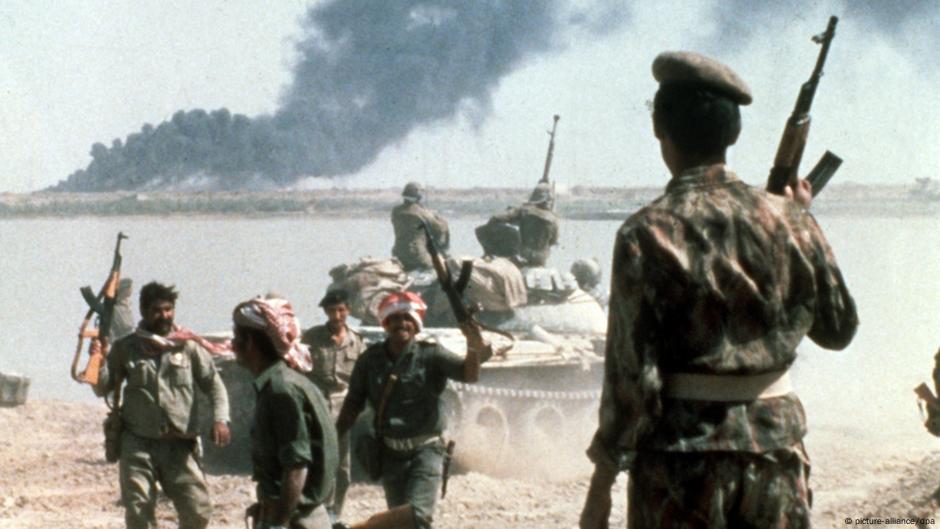
Fast forward to today, and London appears eager to put an end to the “problem” it initially supported the creation of in Tehran. One wonders how many British-made weapons are still circulating among Iran’s military, and whether, without Whitehall’s secret support, we would be where we are now. In backing Ayatollah Khomeini, London inadvertently assisted in fomenting a grave, perpetual threat to Israel.

CovertAction Magazine is made possible by subscriptions, orders and donations from readers like you.
Blow the Whistle on U.S. Imperialism
Click the whistle and donate
When you donate to CovertAction Magazine, you are supporting investigative journalism. Your contributions go directly to supporting the development, production, editing, and dissemination of the Magazine.
CovertAction Magazine does not receive corporate or government sponsorship. Yet, we hold a steadfast commitment to providing compensation for writers, editorial and technical support. Your support helps facilitate this compensation as well as increase the caliber of this work.
Please make a donation by clicking on the donate logo above and enter the amount and your credit or debit card information.
CovertAction Institute, Inc. (CAI) is a 501(c)(3) non-profit organization and your gift is tax-deductible for federal income purposes. CAI’s tax-exempt ID number is 87-2461683.
We sincerely thank you for your support.
Disclaimer: The contents of this article are the sole responsibility of the author(s). CovertAction Institute, Inc. (CAI), including its Board of Directors (BD), Editorial Board (EB), Advisory Board (AB), staff, volunteers and its projects (including CovertAction Magazine) are not responsible for any inaccurate or incorrect statement in this article. This article also does not necessarily represent the views the BD, the EB, the AB, staff, volunteers, or any members of its projects.
Differing viewpoints: CAM publishes articles with differing viewpoints in an effort to nurture vibrant debate and thoughtful critical analysis. Feel free to comment on the articles in the comment section and/or send your letters to the Editors, which we will publish in the Letters column.
Copyrighted Material: This web site may contain copyrighted material the use of which has not always been specifically authorized by the copyright owner. As a not-for-profit charitable organization incorporated in the State of New York, we are making such material available in an effort to advance the understanding of humanity’s problems and hopefully to help find solutions for those problems. We believe this constitutes a ‘fair use’ of any such copyrighted material as provided for in section 107 of the US Copyright Law. You can read more about ‘fair use’ and US Copyright Law at the Legal Information Institute of Cornell Law School.
Republishing: CovertAction Magazine (CAM) grants permission to cross-post CAM articles on not-for-profit community internet sites as long as the source is acknowledged together with a hyperlink to the original CovertAction Magazine article. Also, kindly let us know at info@CovertActionMagazine.com. For publication of CAM articles in print or other forms including commercial internet sites, contact: info@CovertActionMagazine.com.
By using this site, you agree to these terms above.
About the Author

Kit Klarenberg is an investigative journalist exploring the role of intelligence services in shaping politics and perceptions.
Follow him on Twitter @KitKlarenberg.

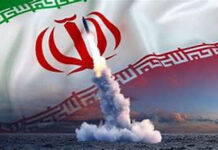
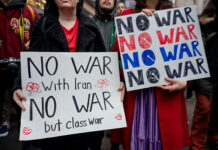
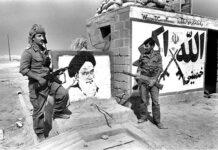
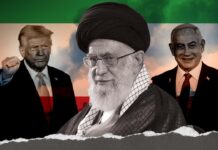
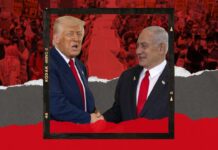

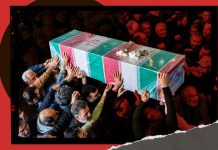
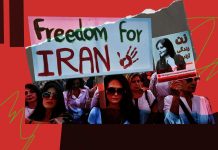
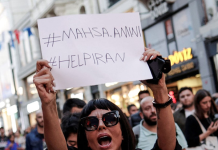

Dear Kit. Love your stuff but the pedant in me advises: “You’ll breathe easier once you master this frequently misused phrase. Bated breath first appeared in Shakespeare’s Merchant of Venice in 1605. Using a shortened form of abated, which means “stopped or reduced,” the phrase refers to people holding their breath in excitement or fear as they wait to see what happens next……..Bait refers to small pieces of food used to catch fish or lure animals into traps
The Shah became a target when, in an interview with CBS tv’s Dan Rather, he opined that Israel had too much influence over the US government. Had the question been asked ina BBC interview, the Shah’s answer would have been virtually identical.
I might be wrong but I think this interview was with Mike Wallace, not Dan Rather. In this interview the Shah was expressing the false belief that the :”Jewish Lobby” had too much influence on the US media and the US government.